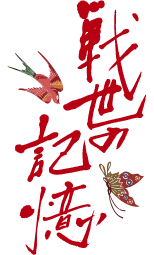
Surviving Mass Suicide
Surviving Mass Suicide
Name: Shigeaki Kinjo (10金城重明)
Place of birth: Tokashiki Island
Status at the time: Higher Course at National School (13 to 16 years old at the time).
Explosions were heard everywhere. I could hear screams.
The people who died or injured in mass suicides were limited to an extremely small number and this, in contrast to what was expected, led to horrible tragedies as a result.
Mass suicides involved a small number of people who died together; however the other residents fell into great disarray. Control was no longer possible.
When all this was going on, a trench mortar, I believe, landed near me and exploded. I was subjected to the blast and I was lightheaded as a result.
I thought to myself, "Am I dead?" I pinched myself to find out but realized that I still had sensation. "Well then, I must still be alive," I surmised.
I was at my wits’ end nevertheless and just staring into the distance.
Then a horrible spectacle jumped into my view.
It was one of the leaders of the village, a middle-aged man. He was bending a small tree repeatedly to break it.
"Now what is that man up to?" I thought to myself. Once he was able to break the tree free and hold it in his hand, he started to beat his wife and children to death.
It was a horrible shock.
Of course, we were already prepared for these types of situations.
However, we had no idea how it could be done. We did not have any means to do it.
In our minds though we thought "We must also kill our own blood relatives like that."
It was a sort of telepathic communication. Then the killing of blood relatives started.
Parents killed their children, husbands killed their wives and brothers killed their sisters, just like that.
The methods used were horrific; even just mentioning them is horrific. Strings were used to strangle, while blades, such as a sickles or razors, were used to cut arteries or wrists. Otherwise, people used a club or a rock to hit another person on the head. A variety of methods were used.
The process was agreed on by implication. The killing of the family was, in most cases, the role filled by the father.
The role was taken over by the grandfather for families with fathers away overseas on military duty.
My uncle only had his eldest daughter remaining alive. So the grandfather dealt with her.
In our case, my older brother and I were young males in the prime of our lives. I was 16 years and one month old, whereas my brother was older than me by two years.
The first person we dealt with was the mother who gave birth to us. We were in chaos, but it was only natural to take the life of those you dearly loved the most, or those closest to you first.
I think a variety of methods were used to do that. For instance, a rope would be used to strangle. A rock would be used to hit someone on the head in due course.
I was 16 years of age, an impressionable youth, who had to deal with such things for thefirst time in my life, so the pain and sorrow made me cry and lament. My mother was of course crying also.
Then obviously it had to be my little brother and little sister that needed to depart before us.
I do not remember how much time had gone by, but I started hearing screams everywhere.
The corpses of 329 people were floating in a cluster, and their blood had dyed the river pure red.
"Why are you still alive?" you may ask.
I had no idea how much time had passed, but I discussed the order of dying with my brother. While we were discussing it, a boy came running in and summoned us, saying "Instead of dying here like this, why don't we go on a raid against our enemy and die that way."
Of course our blood relations committed suicide because they were afraid of the brutal Americans (Kichiku Beigun), therefore to go on a raid against the brutal Americans would take a great deal of resolve. Then we thought to ourselves, we are the only survivors of this island. Even though we were experiencing this heroic sensation of do or die, all we had in our hands were sticks. It was literally Muteppo (literally "no weapons," figuratively "foolhardy").
I still had no "gratitude about surviving," far from it. I thought "The war will surely continue for a long time" so "I undoubtedly would have another chance to die." Therefore, even though it was a strange way to consider the situation, I pinned my hopes on the next opportunity to die and kept my dream alive. That was my state of mind. "Alas, there was no next time to die." That was how I saw it at the time.
Name: Shigeaki Kinjo (10金城重明)
Place of birth: Tokashiki Island
Status at the time: Higher Course at National School (13 to 16 years old at the time).
Explosions were heard everywhere. I could hear screams.
The people who died or injured in mass suicides were limited to an extremely small number and this, in contrast to what was expected, led to horrible tragedies as a result.
Mass suicides involved a small number of people who died together; however the other residents fell into great disarray. Control was no longer possible.
When all this was going on, a trench mortar, I believe, landed near me and exploded. I was subjected to the blast and I was lightheaded as a result.
I thought to myself, "Am I dead?" I pinched myself to find out but realized that I still had sensation. "Well then, I must still be alive," I surmised.
I was at my wits’ end nevertheless and just staring into the distance.
Then a horrible spectacle jumped into my view.
It was one of the leaders of the village, a middle-aged man. He was bending a small tree repeatedly to break it.
"Now what is that man up to?" I thought to myself. Once he was able to break the tree free and hold it in his hand, he started to beat his wife and children to death.
It was a horrible shock.
Of course, we were already prepared for these types of situations.
However, we had no idea how it could be done. We did not have any means to do it.
In our minds though we thought "We must also kill our own blood relatives like that."
It was a sort of telepathic communication. Then the killing of blood relatives started.
Parents killed their children, husbands killed their wives and brothers killed their sisters, just like that.
The methods used were horrific; even just mentioning them is horrific. Strings were used to strangle, while blades, such as a sickles or razors, were used to cut arteries or wrists. Otherwise, people used a club or a rock to hit another person on the head. A variety of methods were used.
The process was agreed on by implication. The killing of the family was, in most cases, the role filled by the father.
The role was taken over by the grandfather for families with fathers away overseas on military duty.
My uncle only had his eldest daughter remaining alive. So the grandfather dealt with her.
In our case, my older brother and I were young males in the prime of our lives. I was 16 years and one month old, whereas my brother was older than me by two years.
The first person we dealt with was the mother who gave birth to us. We were in chaos, but it was only natural to take the life of those you dearly loved the most, or those closest to you first.
I think a variety of methods were used to do that. For instance, a rope would be used to strangle. A rock would be used to hit someone on the head in due course.
I was 16 years of age, an impressionable youth, who had to deal with such things for thefirst time in my life, so the pain and sorrow made me cry and lament. My mother was of course crying also.
Then obviously it had to be my little brother and little sister that needed to depart before us.
I do not remember how much time had gone by, but I started hearing screams everywhere.
The corpses of 329 people were floating in a cluster, and their blood had dyed the river pure red.
"Why are you still alive?" you may ask.
I had no idea how much time had passed, but I discussed the order of dying with my brother. While we were discussing it, a boy came running in and summoned us, saying "Instead of dying here like this, why don't we go on a raid against our enemy and die that way."
Of course our blood relations committed suicide because they were afraid of the brutal Americans (Kichiku Beigun), therefore to go on a raid against the brutal Americans would take a great deal of resolve. Then we thought to ourselves, we are the only survivors of this island. Even though we were experiencing this heroic sensation of do or die, all we had in our hands were sticks. It was literally Muteppo (literally "no weapons," figuratively "foolhardy").
I still had no "gratitude about surviving," far from it. I thought "The war will surely continue for a long time" so "I undoubtedly would have another chance to die." Therefore, even though it was a strange way to consider the situation, I pinned my hopes on the next opportunity to die and kept my dream alive. That was my state of mind. "Alas, there was no next time to die." That was how I saw it at the time.


